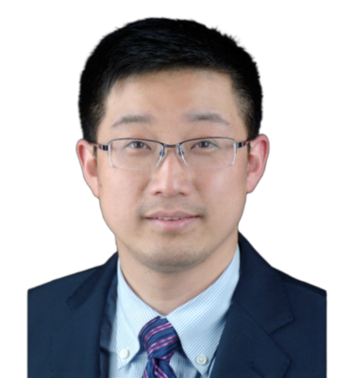
Currently Professor Xu serves as the associate dean of Institute of Translational Medicine in Zhejiang University and vice president of Hangzhou Medical College. He is the Yangtze River Scholar Distinguished Professor of the Ministry of Education, winner of the National Science Fund for Distinguished Young Scholars, winner of Ten Thousand Talent Program. For his outstanding work in the fields of organ transplantation and hepato-pancreato-biliary surgery, he was elected the President-Elect of Chinese Society of Organ Transplantation as well as the Head of Liver Transplantation Program, Deputy Chair and Director-General of Chinese College of Transplant’s Doctors.
Prof. Xu is the pioneer in liver transplantation (LT) for hepatocellular carcinoma (HCC) in China. As the co-founders of the "Hangzhou criteria" for recipient selection, Prof. Xu spearheaded the largest multicenter clinical study (N=6012) on LT criteria for HCC. He devised an innovative molecular stratification system for liver transplant recipients, resulting in a 52% expansion in the eligible patient population and an impressive 41.3% improvement in the 5-year tumor-free survival rate when compared to traditional criteria. He pioneered the inaugural multi-center clinical study on downstaging treatment for HCC in China and introduced the Chinese standard for downstaging treatment, leading to a significant reduction in the post-transplantation recurrence rate to 10.3%. Under his leadership, the initial Clinical Practice Guidelines on Liver Transplantation for Hepatocellular Carcinoma in China were formulated in 2014, with updates in 2018 and 2021. These remarkable achievements were published in Gut, and have garnered significant citations, making it one of the most influential papers in the field of LT globally over the past five years.
Prof. Xu elucidated crucial metabolic and immune characteristics associated with LT, leading to precise strategies for preventing and treating tumor recurrence. Based on a nationwide multicenter large-scale cohort study (N = 10204), it was first reported that metabolic complications after LT significantly increases the risk of tumor recurrence and metastasis. His study also uncovered the critical role of E2F7/TSC1 pathway in the anti-recurrence effects of mTOR inhibitors after transplantation. This innovative point guided the individualized clinical application of immunosuppressive agents, resulting in a more than 30% improvement in the 5-year survival rate of high-risk recipients. Moreover, the study identified USP22, CHI3L1, TREM-1, and others as significant driving factors contributing to liver cancer recurrence. It elucidated their crucial mechanisms related to stemness maintenance and immune resistance, while also developing a specific targeted delivery system responsive to ROS for liver cancer, resulting in an impressive tumor suppression rate of 82.7%. The aforementioned findings were published in Journal of Hepatology, Gut and Hepatology, and were granted 10 national invention patents.
Prof. Xu is dedicated to innovating the essential surgical technology system of LT for HCC, and established novel standards for the utilization of marginal liver donors. He played a key role in the development of the "no-touch" technique for LT, significantly extending the survival time of high-risk patients with a propensity for recurrence by 1.5 times. He proposed for the first time in the world that the cold ischemia time of steatosis donor liver ≥8h is a key factor affecting the efficacy of LT. As the Executive President of the National Quality Control Centre for Liver Transplantation and Secretary General of the Scientific Committee of China Liver Transplantation Registry (CLTR), he has tirelessly advanced the establishment and improvement of the national liver transplant quality control system since 2014. This provides critical scientific evidence for national decision-making. Additionally, he has edited China's first systematic and standardized terminology standard for the organ transplantation discipline, " Chinese Terms in Organ Transplantation."
Prof. Xu has hosted multiple scientific research programs, which funded by National High-tech R&D Program of China, National Science and Technology Major Project of China, Key Program of National Natural Science Foundation of China, etc. He has published over 240 papers in SCI journals. As the first contributor, he was awarded the First Prize of Zhejiang Provincial Science and Technology Progress Award (2020) and the Second Prize of Chinese Medical Science and Technology Award (2020). And as one of the major contributors, he has received several prizes including the National Innovative Team Prize (2015), the First Prize and Second Prize of National Scientific and Technological Progress Awards in 2013 and 2008.
